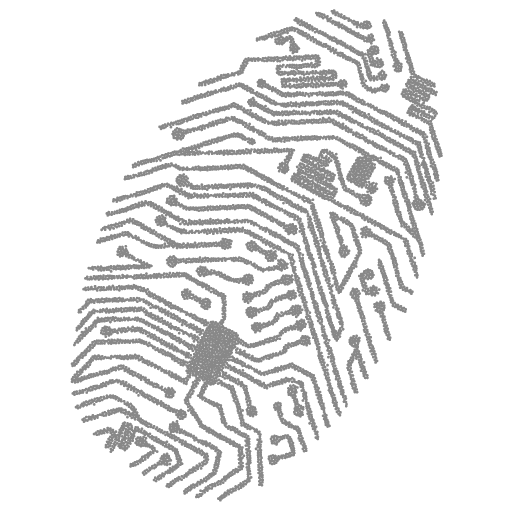The game development industry knows no boundaries, and often attracts workers from all over the world. But employment and immigration regulations pose a barrier to drawing on the resources of the global labour market, particularly when a game development studio considers employing persons in Poland who are citizens of countries outside the EU, the EEA, or Switzerland. However, new non-standard forms of work help overcome the difficulties in hiring foreigners, and are worth considering for roles such as programmers, graphic designers, sound engineers, script writers, and game testers.
Continue reading “Remote work and “employer of record”: Employment in the video game industry”Humvee, iPhone, Pip-Boy: Can real-life items be depicted in video games?
Video game designers often place the narrative of their games in contemporary or historical times. This requires them to base elements in the game on items familiar from the real world, such as vehicles, clothing, jewellery, weapons, foods and electronics. Can such depictions be freely used in games, or is consent required?
This is a crucial business question, and a mistake can generate significant legal risks for a game’s producer and publisher. It includes the risk of claims by owners of rights to depicted items, as well as contractual risks arising out agreements between producer and publisher, or distributor and console manufacturer (in various configurations, depending on the business model). The risk grows for AAA titles generating high sales all around the world. This situation is not helped by the major differences between the legal systems in the largest video game markets (the US, China, Japan, South Korea, Western Europe).
Continue reading “Humvee, iPhone, Pip-Boy: Can real-life items be depicted in video games?”Legal aspects of the video game industry
The video game development sector has grown rapidly in recent years. With the spread of smartphones, new business models, and distribution platforms, the market for video games has taken off, becoming a key sector of the creative industry. Its growth stirs the imagination and appetite not only of game producers and publishers, but also of the biggest companies in sectors like IT and film, who are increasingly oriented toward the game market. It is also a promising field for investors, particularly from Asia. The industry’s growth has not even been slowed by the COVID-19 pandemic. To the contrary, the industry has taken advantage of this time to reinforce its position and achieve new growth.
The competitiveness of the video game market is also growing, and smaller producers and publishers must compete with global giants. This is not discouraging Polish producers and publishers. In addition to the largest studios, smaller but equally ambitious ones continue to spring up in Poland, with backing from various programmes and accelerators.
Continue reading “Legal aspects of the video game industry”Tech versus virus: Remote diagnostics
This time we address solutions from the front lines: devices for remote diagnostics which can improve effective detection of the coronavirus and also unburden the health service in other areas. These solutions can also serve as a proving ground for the regulatory approach to oversight of algorithms.
The immediate inspiration for writing this text was a solution from the company StethoMe presented at the DemoDay organised by the MIT Enterprise Forum CEE. It is a wireless stethoscope combined with an application allowing respiratory examination at a distance. The system also enables analysis of the collected data using an artificial intelligence algorithm. StethoMe is currently testing the possibility of using a remote stethoscope to examine symptoms caused by the coronavirus. Remote diagnostics could greatly improve the effectiveness and safety of our fight against the virus.
We could bet with great odds that one of the effects of the pandemic will be an increased interest in remote diagnostics solutions in the near future. Thus we should point to some of the special regulatory challenges these solutions will necessarily entail.
Continue reading “Tech versus virus: Remote diagnostics”Tech versus virus: Contact tracing
The battle with the coronavirus is dynamically entering another phase. After the initial shock, we are realising that technology may have a crucial impact on the rate of return to a somewhat more normal life. This doesn’t mean just biotech. Solutions keeping the virus under relative control until effective vaccines reach the market can prove just as important.
With this article, we would like to launch a series of publications on the legal aspects of solutions for supporting the battle with the coronavirus. These solutions are extremely interesting from the conceptual and technological perspective, but also entail numerous legal issues.
Continue reading “Tech versus virus: Contact tracing”European vision of the data-based economy
Key strategic documents from the European Commission on data and AI—the European data strategy and Excellence and trust in artificial intelligence—were recently released for public consultation. They present a European vision for a new model of the economy.
According to these documents, the new model of the economy is to be founded on principles vital for European values, particularly human dignity and trust. This aspect should be stressed, as the European Union clearly is becoming the global leader in thinking about new technologies in light of humanistic values. This is a unique approach, but also entails several dilemmas. In adopting this approach, the EU risks eroding its competitive advantages, at least in the short-term perspective. Most likely, AI technologies will develop faster in places where their growth is not restrained by ethical doubts. The Commission thus proposes an ambitious but also risky approach.
Continue reading “European vision of the data-based economy”